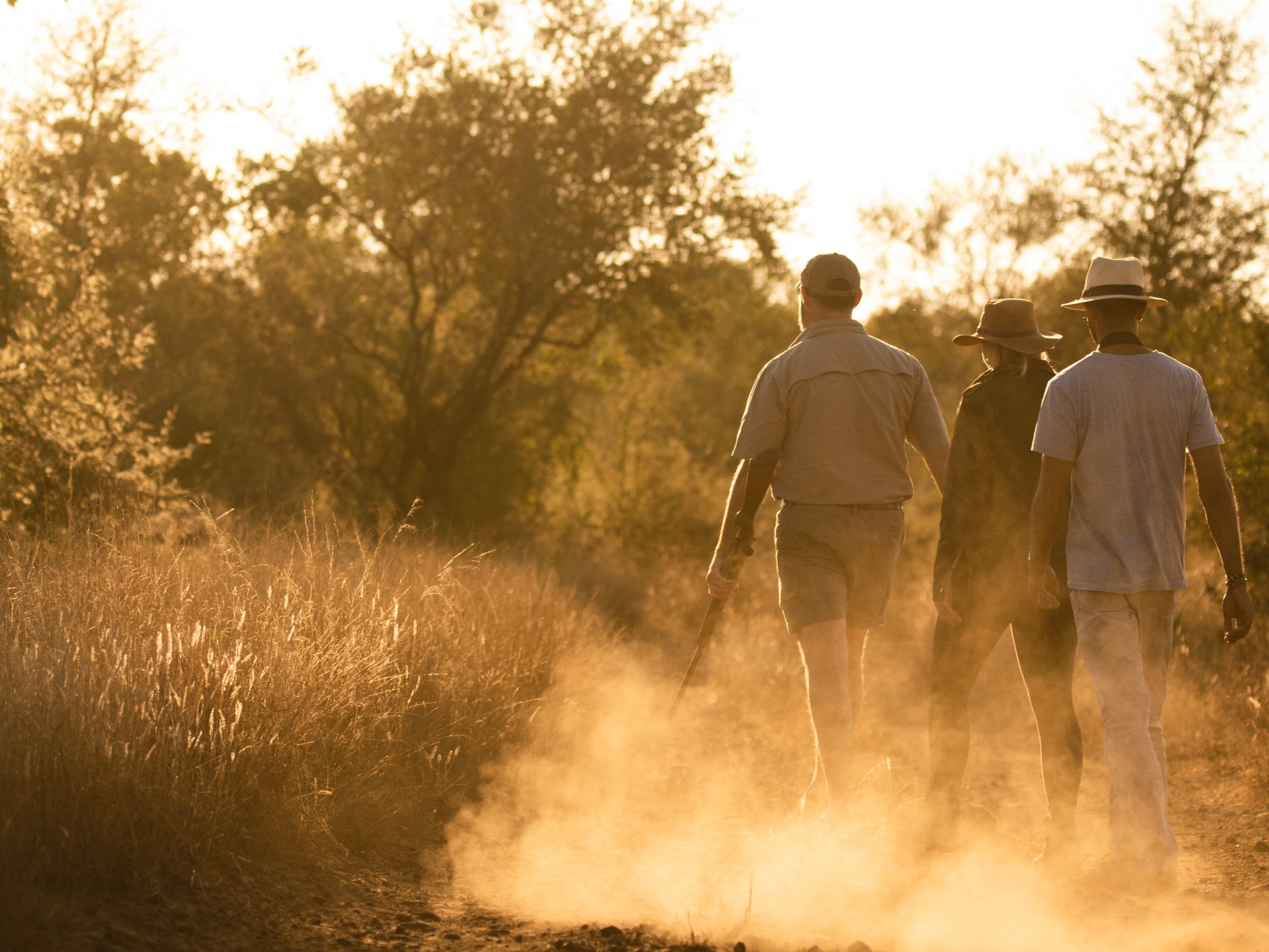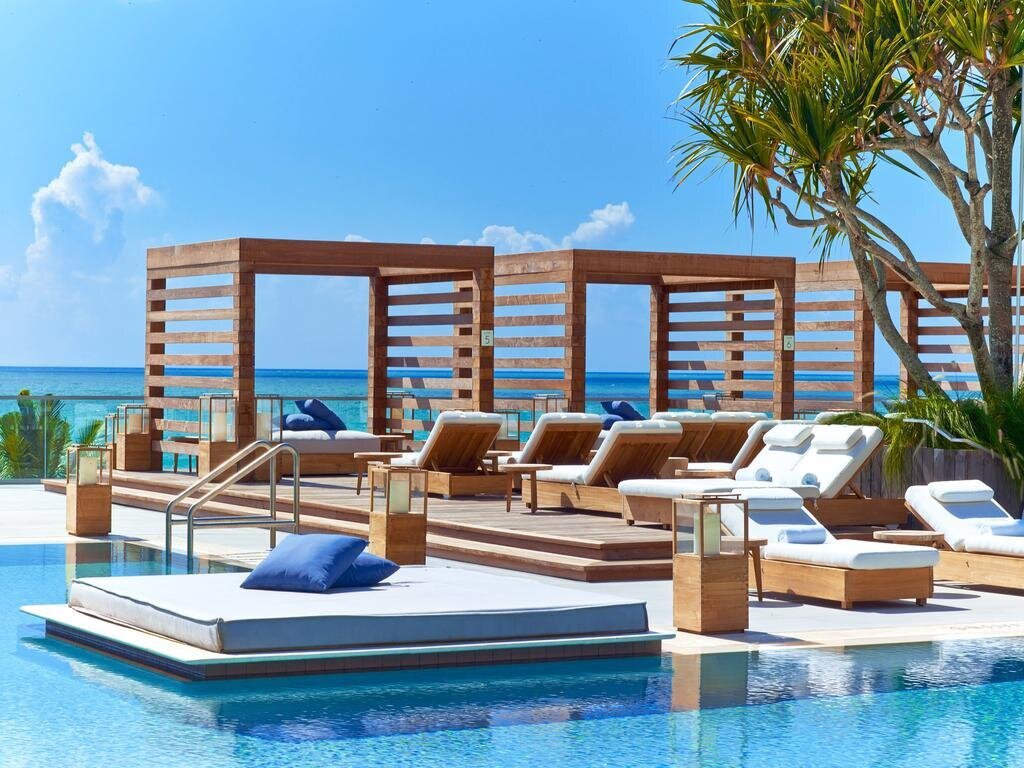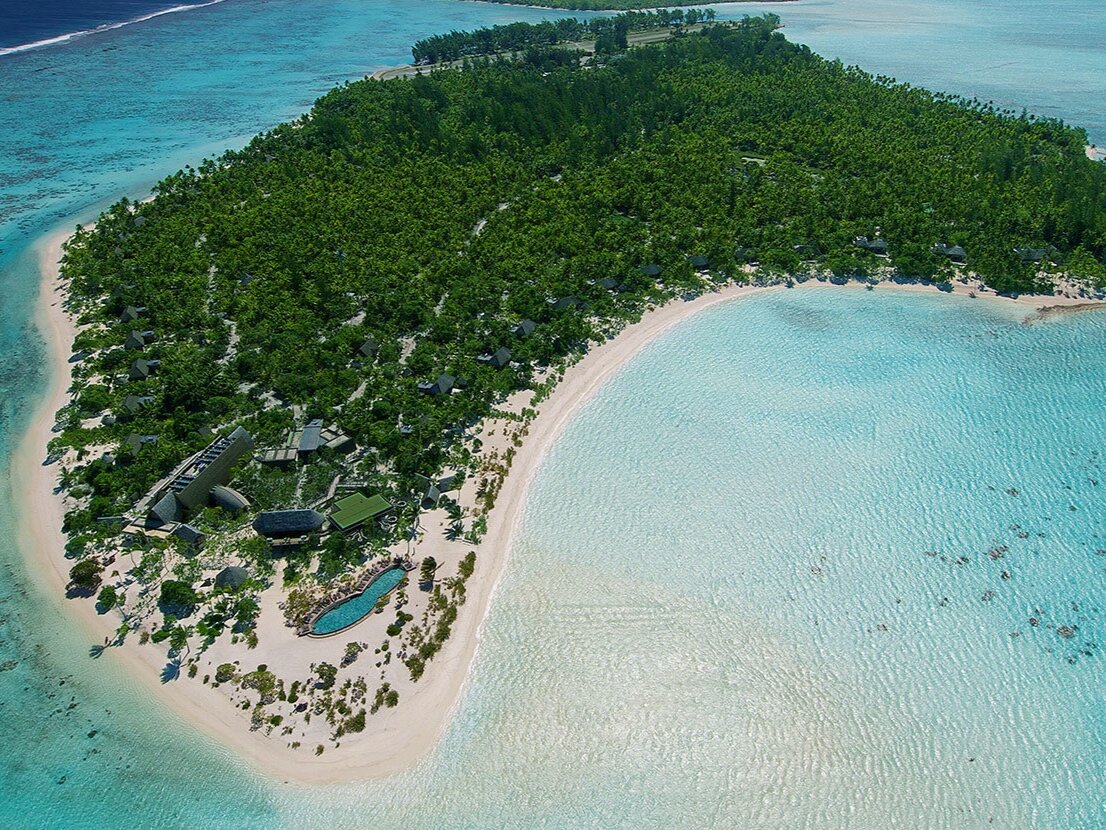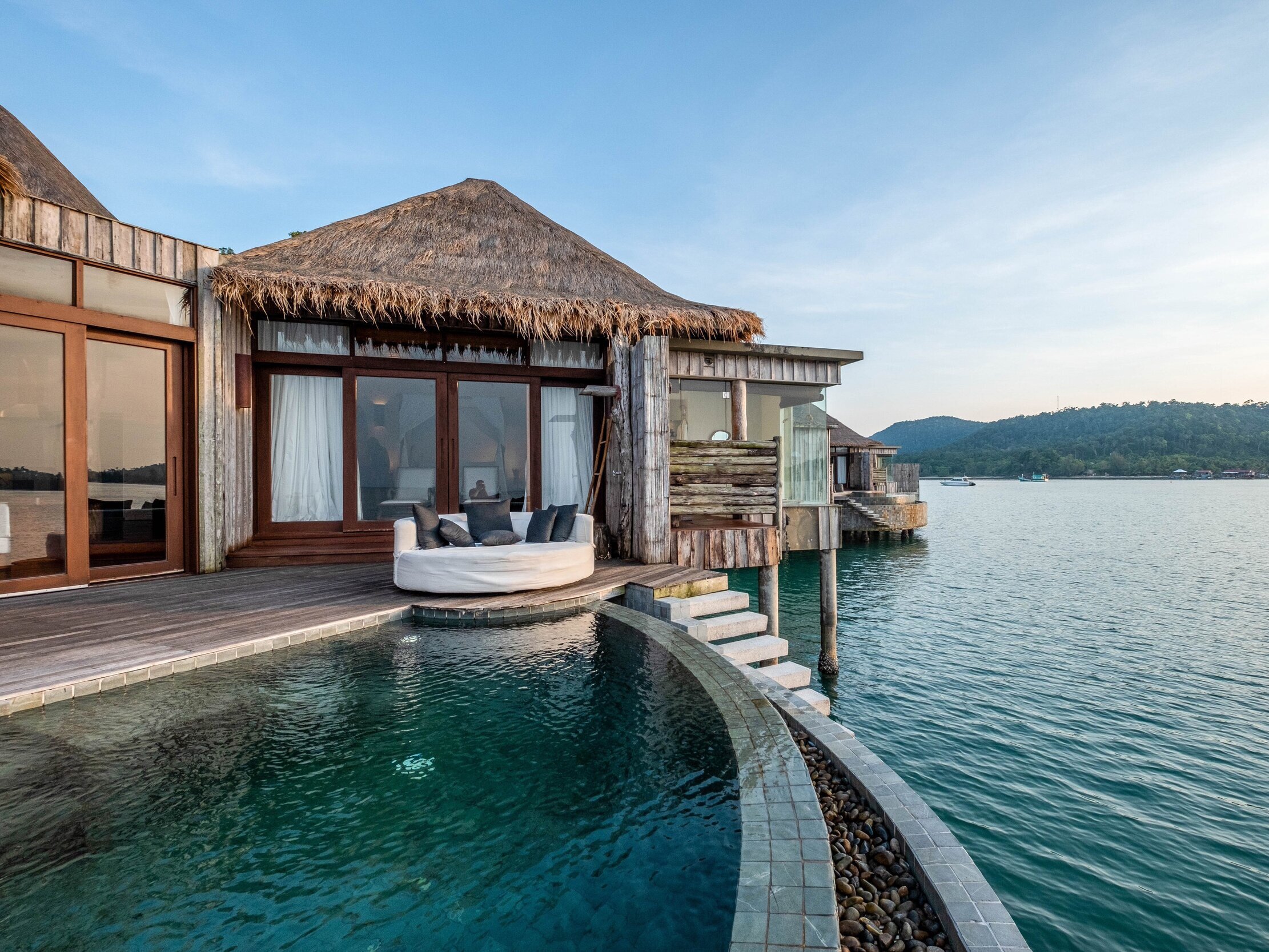CONSCIOUS TRAVEL: 8 HOTELS/HOTEL BRANDS DESIGNED TO RESPECT THE ENVIRONMENT
Conscious travel is important, especially in today’s world. We have included 8 hotel brands that respect the environment through various efforts, from environmental conservation to supporting the local community. By choosing to travel to any of these properties, you will not only have an incredibly memorable experience, you will play a part in bettering the destination.
The team would love to assist with a curated itinerary to any of these destinations.
SINGITA
South Africa, Zimbabwe, Tanzania, & Rwanda
Conservation at Singita is supported by three pillars, namely Biodiversity, Community and Sustainability.
Singita is a conservation and ecotourism brand that has been preserving African wilderness for the past 26 years, offering guests an exceptional safari experience with 15 luxury, award-winning lodges and camps across six regions in Africa.
In days gone by, unspoiled wilderness on earth was found in abundance – but today it is rare, vulnerable and fragile and there is much to be done to protect these rapidly diminishing areas.
In partnership with non-profit funds and trusts who implement strategic conservation projects in each region, Singita is preserving and protecting pristine land and existing wildlife populations and helping to create economic independence within communities that live alongside the reserves.
*Images, video, and information courtesy of Singita
NIHI SUMBA
Sumba, Indonesia
Located on the island of Sumba and 400 km to the east of Bali, NIHI Sumba is a purposeful resort with 28 private villas set over 576 acres in Sumba - a remote island, 50-min flight from Bali, in Indonesia. Their guiding principle “Freedom to Thrive” stands for understanding, liberty, self-containment, impact, and space. With an area roughly the size of Jamaica, Sumba has a population of only 756,000, most of which is concentrated on the eastern part of the island, far away from the resort.
NIHI Sumba’s history is an extraordinarily reaffirming story of how an enterprise can be powered by community and at the same time be empowering for the community. It is a rare balance, which you feel grateful every single minute you are there. NIHI Sumba was born of a vision to protect and preserve the unique Sumbanese culture and empower the local communities to support themselves and give them the opportunity to improve their lives.
NIHI is committed to making conscious decisions at every level to support the regeneration of natural resources and forges a new language in hospitality to curate experiences that serve the place and the people living there in the best way possible. NIHI Sumba has become a philanthropic vehicle dedicated to supporting projects of The Sumba Foundation has made life better for the 27,000 people it helps every day with its water, health, education, and economic initiatives.
Over the last month, they raised $150,603 towards their goal of $200,000 for the Sumba Crisis Relief Fund, in addition to the $200,000 their owner Chris Burch generously donated. Through the funds collected for the Sumba Crisis Relief fund, they have ordered more than 36 tons of rice and other food supplies and distributed direct food support to nearly 1,500 families in the area. Additionally, they have also ordered a six-month supply of medicine and medical equipment for their workers and the community. Lastly, the Nihi Sumba Horse Aid Project is a special project they initiated last year. They provide nutrition and medical support for about 200+ starving horses in the drought-stricken East of Sumba and are hoping to raise additional funds to run two more clinics with volunteer vets in April and December.
*Images, video, and information courtesy of NIHI Sumba
MUSTIQUE
Mustique, St. Vincent & the Grenadines
Coral Reef Conservation
A few years ago, a decision was made to try and restore the reefs around Mustique island. They were rapidly disappearing over the years due a wide variety of issues, some natural and some man-made. Around the Caribbean, there were hurricanes and storms, sea urchin disease, overfishing of the herbivorous parrotfish, poor water quality due to sewerage run-off which all contributed to a decline in coral reef health.
Please find a video above that shows their conservation efforts and how they are continuing to maintain the marine life around the island.
*Images, video, and information courtesy of Mustique
1 HOTELS
New York City, Brooklyn, Miami, West Hollywood, & Sanya, China
1 Hotel West Hollywood
1 Hotel South Beach
1 Hotel Brooklyn Bridge
1 Hotel Central Park
1 Hotels is a platform for change leading hospitality forward. The future of the world and the future of hospitality are one in the same. 1 Hotels aspires to be a platform to spark conversations between innovators and guests, that transform the industry and lives. Their sustainability keystones are the foundation on which they base all their design, construction and operational decisions and include:
Environmental Impact – energy binds everything and everyone but we also need it to keep the lights on. 1 Hotels implements a wide range of energy, water, and environmental design strategies to keep their footprint small.
Advocacy, Education & Engagement – 1 Hotels looks to spark conversations about the environment and their role in protecting it. They do this through organized volunteer activities and paid volunteer days for their teams, advocacy and educational initiatives like their partnerships with organizations such as the NRDC.
Human Health & Wellbeing — from air and water filtration systems, to biophilic design principles and the use of natural materials throughout their spaces, they place health and wellness at the center of design, construction, facilities and operational decisions.
Resiliency & Ongoing Performance Improvement – as a platform for change, this sometimes requires them to put their neck out a little further and try something new, and they encourage their guests to be a part of this change too. Through initiatives like their plastic reduction program and electric car activations, they continue to find ways to evolve.
Food & Beverage Responsibility – they believe that all food should be good, clean and fair; delicious and nutritious food is a right; natural resources should be protected for future generations; people and the environment depend on one another; and the dignity of labor from field to fork should be fought for.
*Images and information courtesy of 1 Hotels
THE BRANDO
Tetiaroa, French Polynesia
Their mission is to provide one of the most luxurious, authentic and enriching travel experiences available anywhere in the world in an environmentally sensitive, sustainable and culturally rich manner.
They are committed to preserving and protecting the natural splendor and precious biodiversity of Tetiaroa; respecting and supporting Polynesian culture, hospitality and traditions; and achieving a negligible carbon footprint.
They will support research, education and outreach aimed at increasing the knowledge of and appreciation for the natural and cultural heritage of tropical islands and their people. And they will use, encourage and support innovation to address local and global environmental and sustainability issues.
As stewards of Tetiaroa, they are committed to preserving and protecting the atoll and being a responsible member of both their local and global communities. They will deal fairly and honestly with their staff and suppliers in an atmosphere of mutual trust, accountability and reward.
They will strive to be a model for the rest of the world. They will leave Tetiaroa a better place than when they came and continually seek to enhance the lives of all those who visit.
*Images and information courtesy of The Brando
SONG SAA PRIVATE ISLAND
Cambodia
The Song Saa Foundation is a non-profit organisation established in 2013 to protect the habitats of the Koh Rong Archipelago and improve the welfare of its communities. The Foundation continues the conservation work they began in 2006, when they first came to Koh Ouen, and at present they are proud to have launched a broad range of conservation and humanitarian initiatives that go well beyond the borders of the archipelago. From establishing the kingdom’s first marine reserve, they have grown to become a preeminent coastal marine NGO, helping improve the lives of local people and promoting the protection of the environment wherever their work takes them.
Saving sea turtles, providing medical care, promoting local designs and launching education programmes – Song Saa Foundation’s projects are diverse in scope. Using science, innovation and collaboration to implement useful and impactful actions, they divide their programmes into the main categories of water, people and land.
*Images and information courtesy of Song Saa Private Island
FOGO ISLAND INN
Joe Batt’s Arm, Newfoundland
From its inception, Fogo Island Inn has adopted a responsible, systems-based approach to design and implementation in order to conduct itself in a way that demonstrates and upholds a higher fidelity relationship with the natural world. The Inn has a concrete and accredited environmental strategy, ethical suppliers, and tactics in place to protect the environment. They are deeply committed to and invested in all things local, and they consistently surpass the requirements of environmental laws.
They start by seeking local, Fogo Island suppliers. If a product or service is not available locally, they then move to their closest communities on mainland Newfoundland, and then to other suppliers within the province of Newfoundland & Labrador. From there, they move to other suppliers in Canada, then North America, their traditional international trading partners, followed by the rest of the world. In every sourcing decision, goods and services are purchased only when they originate from jurisdictions that abide by basic environmental protection laws and labour standards.
Maintaining responsible, energy efficient, and ecologically-minded design, construction, and ongoing operation were primary objectives of the Inn. The building’s architecture and operational systems have been conceptualized as a single system with the primary purpose of providing unparalleled indoor environmental quality within a luxury setting, while also ensuring the highest levels of energy efficiency and resource conservation. The Inn’s steel frame is highly insulated, and the windows have the equivalent rating of triple pane glazing. Rainwater from the roof is collected into two cisterns in the basement and subsequently filtered for use in toilets, laundry, and kitchen appliances.
*Images and information courtesy of Fogo Island Inn
























